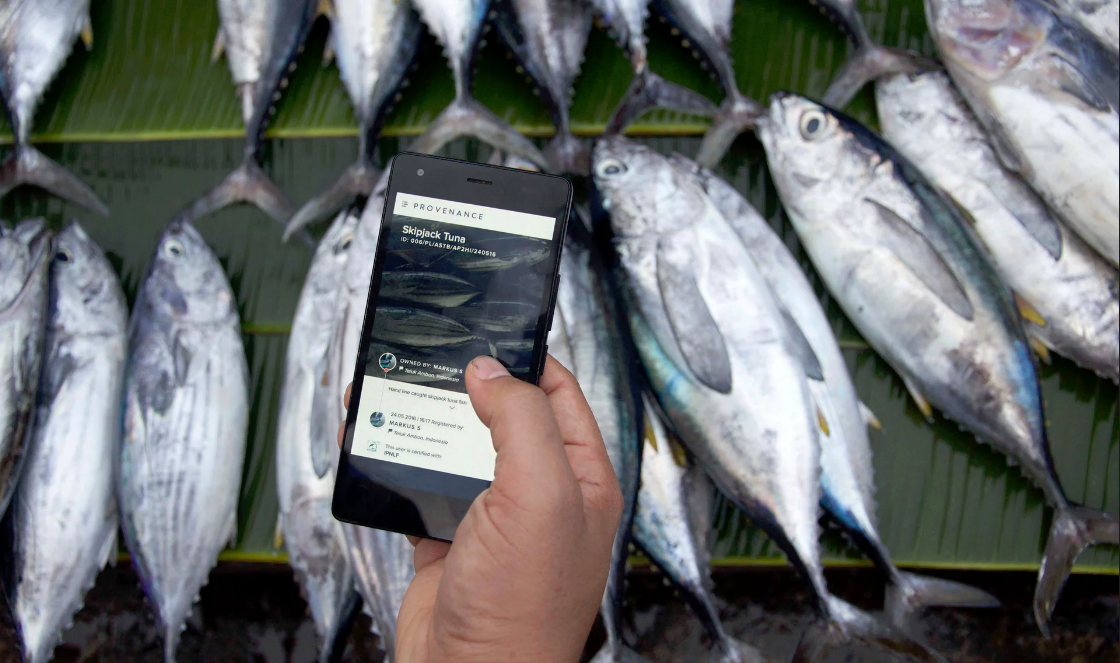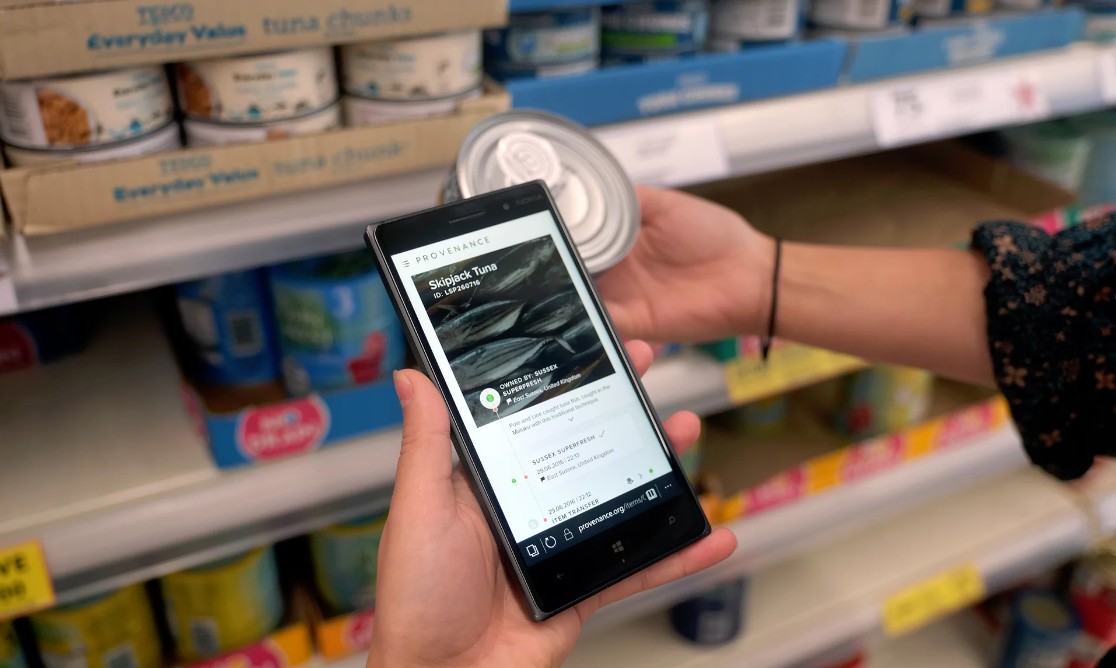https://www.theguardian.com/sustainable-business/2016/sep/07/blockchain-fish-slavery-free-seafood-sustainable-technology
Technology could be used to differentiate fish caught sustainably to those caught illegally, or linked to human rights abuses

Blockchain is a digital ledger or record of information that is accessible to everyone. The technology is being trialled in the fishing industry. Photograph: Maria-Ines Fuenmayor/Provenance
A new digital technology has been trialled to track fish from trawler to the supermarket in a breakthrough that could help stop human rights abuses and illegal fishing.The technology – called blockchain and first used to power the currency Bitcoin – is expected to revolutionise the finance, property and food sectors replacing traditional contracts, paperwork and identification methods.Blockchain is a digital ledger or record of information that is accessible to everyone. In this case it details the origins of fish and allows anyone to see where the fish was caught, processed and sold on. It does not stop illegal fishing on its own but it opens up the supply chain for anyone to scrutinise.With the seafood industry notorious for human rights abuses and illegal fishing, campaigners hope the technology, piloted by a UK-based company Provenance, could help retailers, manufacturers and restaurants prove the origins of their fish.“Building in mechanisms to deliver transparency from net to plate is central to eradicating illegal, unsustainable fishing and the human rights abuses that have plagued parts of the seafood production sector,” said Steve Trent, executive director at the Environmental Justice Foundation (EJF).

Smartphones could be used to scan fish products used in the trial to access information on their origins and journey to the supermarket shelf. Photograph: Provenance
At present the buying and selling of seafood is tracked by paper records and tags on the fish. The new blockchain approach sees local fishermen send SMS messages to register their catch on the blockchain. This identification is then transferred to a supplier along with the catch, with any subsequent move, for example processing or tinning, also recorded.
The information on the origin and supply chain journey of the fish can then be accessed and verified by end buyers and consumers in shops or restaurants using their smartphones, replacing the current printed communication and labels.
The technology has already sparked interest from food companies, with the Co-op Food group currently conducting its own trial with Provenance on fresh food products - expected to conclude later this year.Provenance founder Jessi Baker said that the technology currently adds a “few pence” to the price of the final product so is likely to be used first on premium fish products, or even wine or olive oil. The cost will need to come down to “points of a pence” to be viable for canned and processed fish produce, she said.
“We are desperately in need of a solution,” said Baker. “We want to help support fish that is caught sustainably and verify these claims down the chain to help drive the market for slavery-free fish. This pilot shows that complex, global supply chains can be made transparent by using blockchain technology.”The fish trial has been welcomed by Thai Union, the world’s biggest tuna exporter, that has faced its own sustainability criticisms. Tesco stopped stocking its John West brand in July this year, citing the need for the fish company to ensure it was using sustainable sources of tuna.“Traceability – which allows us to prove that our fish is caught legally and sustainably and that safe labour conditions are met throughout the supply chain - is vital if we are to interest consumers in the source of their tuna,” said Dr Darian McBain, director of sustainability at Thai Union.
“The next challenges are building scalability so that traceability systems can operate across borders and certifying authorities, and educating consumers that it is worth paying more for sustainably-caught traceable fish where workers are paid a fair and decent wage,” she said.Trent from EJF, cautioned that on its own the technology would not end abuses in the seafood sector. “It is also essential to understand and support the other actions and mechanisms that are needed to combat these abuses, including the role of effective enforcement actions and the application of strong, fair and transparent action in the courts to impose robust penalties,” he said.
